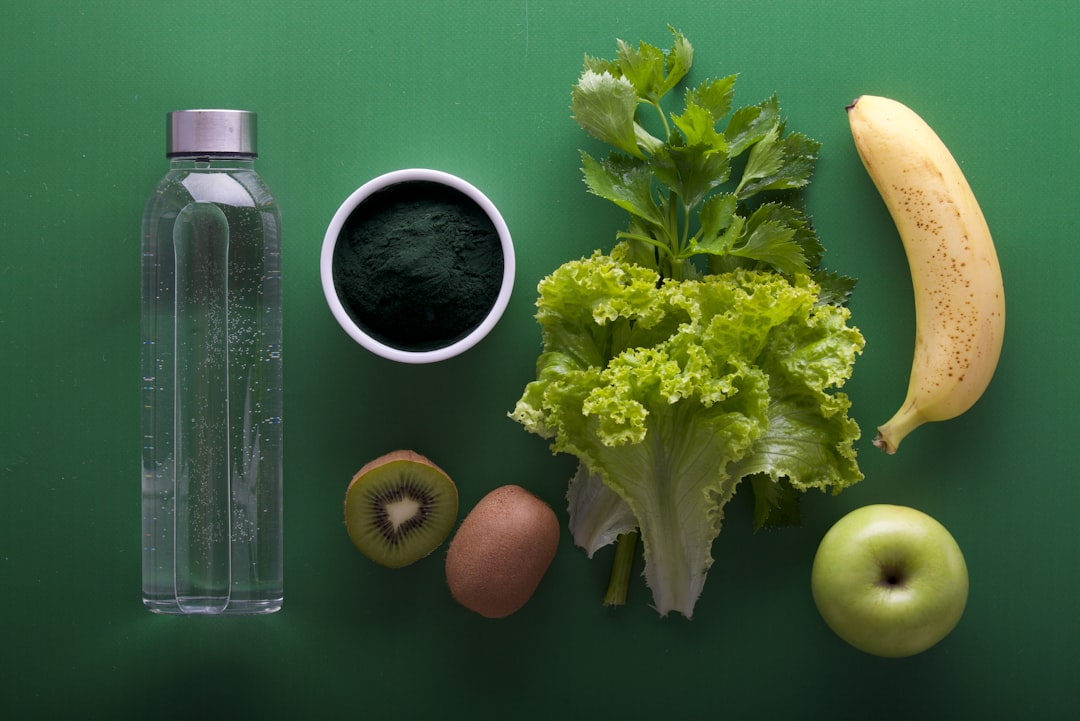As you age, the importance of nutrition becomes increasingly evident. Proper nutrition is not just about maintaining a healthy weight; it plays a crucial role in overall well-being, particularly for seniors. A well-balanced diet can help you manage chronic conditions, enhance your immune system, and improve your quality of life.
As your body undergoes various changes with age, your nutritional needs also evolve. This makes it essential to pay close attention to what you eat, ensuring that you receive the right nutrients to support your health. Moreover, good nutrition can significantly impact your mental health.
Studies have shown that a balanced diet can help reduce the risk of cognitive decline and improve mood. When you nourish your body with the right foods, you are not only fueling your physical health but also supporting your mental and emotional well-being. Therefore, understanding the importance of senior nutrition is vital for maintaining a vibrant and active lifestyle as you age.
Key Takeaways
- Proper nutrition is crucial for seniors to maintain overall health and well-being, including joint health.
- Nutrients such as vitamin D, calcium, and omega-3 fatty acids are essential for supporting joint health in seniors.
- Common nutritional deficiencies in seniors include vitamin D, calcium, and vitamin B12, which can impact joint health.
- Adequate hydration is important for joint health as it helps to maintain the lubrication and cushioning of the joints.
- Weight management is key for seniors with joint issues, as excess weight can put added stress on the joints and exacerbate pain and discomfort.
Nutrients that Support Joint Health
When it comes to joint health, certain nutrients play a pivotal role in keeping your joints functioning optimally. One of the most important nutrients for joint health is glucosamine, which helps maintain cartilage integrity. Cartilage is the protective tissue that cushions your joints, and as you age, it can wear down, leading to discomfort and stiffness.
By incorporating glucosamine-rich foods or supplements into your diet, you can help support your joint health and potentially alleviate some of the discomfort associated with aging. In addition to glucosamine, omega-3 fatty acids are another essential nutrient for joint health. These healthy fats have anti-inflammatory properties that can help reduce joint pain and stiffness.
Foods rich in omega-3s, such as fatty fish like salmon and mackerel, walnuts, and flaxseeds, should be staples in your diet. By focusing on these nutrients, you can take proactive steps to support your joints and maintain mobility as you age.
Common Nutritional Deficiencies in Seniors

As you grow older, certain nutritional deficiencies may become more prevalent due to various factors such as changes in appetite, medication side effects, or dietary restrictions. One common deficiency among seniors is vitamin B12. This vitamin is crucial for nerve function and the production of red blood cells.
A lack of B12 can lead to fatigue, weakness, and even cognitive issues. To combat this deficiency, consider incorporating more fortified cereals, dairy products, and lean meats into your meals. Another prevalent deficiency is vitamin D, which is essential for bone health and immune function.
Many seniors do not get enough sunlight exposure to produce adequate vitamin D naturally. This deficiency can lead to weakened bones and increased risk of fractures. To ensure you’re getting enough vitamin D, consider including fortified foods like milk and orange juice in your diet or discussing supplementation with your healthcare provider.
The Role of Hydration in Joint Health
| Hydration Level | Joint Health |
|---|---|
| Well-hydrated | Improved lubrication of joints |
| Dehydrated | Increased risk of joint pain and stiffness |
| Hydration and Exercise | Proper hydration supports joint flexibility during physical activity |
Hydration is often overlooked when discussing joint health, yet it plays a critical role in maintaining joint function.
When you’re not adequately hydrated, your joints may become stiff and painful, making it difficult to move comfortably.
As a senior, it’s important to prioritize hydration by drinking plenty of water throughout the day. In addition to plain water, you can also hydrate through foods with high water content, such as fruits and vegetables. Incorporating soups and broths into your meals can also contribute to your overall fluid intake.
By staying hydrated, you can help support your joints and reduce discomfort associated with stiffness.
The Impact of Weight Management on Joint Health
Maintaining a healthy weight is crucial for joint health, especially as you age. Excess weight puts additional stress on your joints, particularly those in the lower body such as the knees and hips. This added pressure can lead to increased pain and a higher risk of developing conditions like osteoarthritis.
By managing your weight through a balanced diet and regular physical activity, you can alleviate some of this stress on your joints.
When you’re at a healthy weight, you’re more likely to engage in physical activities that promote joint health, such as walking or swimming.
This creates a positive feedback loop where maintaining a healthy weight leads to better joint function, which in turn encourages more movement.
Dietary Guidelines for Seniors with Joint Issues

If you’re dealing with joint issues, following specific dietary guidelines can help alleviate discomfort and promote overall health. First and foremost, focus on a diet rich in fruits and vegetables. These foods are packed with antioxidants that combat inflammation and support joint health.
Aim for a variety of colors on your plate to ensure you’re getting a wide range of nutrients. In addition to fruits and vegetables, prioritize whole grains over refined grains. Whole grains provide essential fiber that aids digestion and helps maintain a healthy weight.
Lean proteins such as chicken, fish, beans, and legumes should also be included in your diet to support muscle health and repair tissues around the joints. By adhering to these dietary guidelines, you can create a balanced meal plan that supports both your joint health and overall well-being.
The Benefits of Anti-Inflammatory Foods for Joint Health
Incorporating anti-inflammatory foods into your diet can be particularly beneficial for joint health. These foods help reduce inflammation in the body, which is often a contributing factor to joint pain and stiffness. Some excellent options include berries, leafy greens, nuts, seeds, and fatty fish rich in omega-3 fatty acids.
By focusing on these foods, you can create meals that not only taste great but also work to alleviate discomfort. Additionally, spices like turmeric and ginger have been shown to possess anti-inflammatory properties as well. Adding these spices to your cooking can enhance flavor while providing health benefits.
By making a conscious effort to include anti-inflammatory foods in your diet, you can take proactive steps toward managing joint pain and improving your overall quality of life.
How to Incorporate Omega-3 Fatty Acids into a Senior’s Diet
Incorporating omega-3 fatty acids into your diet doesn’t have to be complicated or time-consuming. One of the easiest ways to do this is by including fatty fish in your meals at least twice a week. Options like salmon, sardines, and mackerel are not only delicious but also packed with omega-3s that support joint health.
If you’re not a fan of fish or prefer plant-based sources of omega-3s, consider adding walnuts or flaxseeds to your meals. You can sprinkle them on salads or blend them into smoothies for an extra nutritional boost. Additionally, chia seeds are another excellent source of omega-3s that can be easily incorporated into yogurt or oatmeal.
By being mindful of these options, you can ensure you’re getting enough omega-3 fatty acids to support your joint health.
The Connection Between Vitamin D and Joint Health
Vitamin D plays a significant role in maintaining bone health and supporting joint function. As you age, the ability of your skin to synthesize vitamin D from sunlight decreases, making it essential to find alternative sources of this vital nutrient. A deficiency in vitamin D can lead to weakened bones and increased risk of joint pain or arthritis.
To ensure you’re getting enough vitamin D, consider incorporating fortified foods like dairy products or cereals into your diet. Fatty fish such as salmon also provide a natural source of vitamin D. If you’re concerned about your levels or have difficulty obtaining enough through diet alone, discussing supplementation with your healthcare provider may be beneficial.
Tips for Meal Planning and Preparation for Seniors with Joint Pain
Meal planning can be an effective strategy for seniors dealing with joint pain. By preparing meals in advance, you can ensure that you’re consuming nutritious foods without the stress of daily cooking. Start by creating a weekly meal plan that includes a variety of fruits, vegetables, whole grains, lean proteins, and healthy fats.
When preparing meals, consider using tools that make cooking easier on your joints. For example, using electric kitchen appliances like slow cookers or food processors can save time and reduce strain on your hands and wrists. Additionally, batch cooking larger portions allows you to freeze leftovers for quick meals on days when cooking feels challenging.
Seeking Professional Guidance for Senior Nutrition
Navigating nutrition as a senior can be complex due to various factors such as medical conditions or dietary restrictions. Seeking professional guidance from a registered dietitian or nutritionist can provide personalized recommendations tailored to your specific needs. These professionals can help you create meal plans that address any nutritional deficiencies while considering any existing health conditions.
Moreover, they can offer valuable insights into managing chronic conditions through diet and provide strategies for overcoming barriers to healthy eating. By working with a professional, you can gain confidence in making informed dietary choices that support both your joint health and overall well-being as you age. In conclusion, prioritizing nutrition as a senior is essential for maintaining joint health and overall well-being.
By understanding the importance of specific nutrients, addressing common deficiencies, staying hydrated, managing weight effectively, following dietary guidelines tailored for joint issues, incorporating anti-inflammatory foods, ensuring adequate omega-3 intake and vitamin D levels, planning meals thoughtfully, and seeking professional guidance when needed—you can take proactive steps toward enhancing your quality of life as you age gracefully.
As we age, maintaining healthy joints becomes increasingly important, and nutrition plays a crucial role in this process. A balanced diet rich in omega-3 fatty acids, antioxidants, and essential vitamins can help reduce inflammation and support joint health. For more detailed insights into how seniors can optimize their nutrition for healthier joints, you can explore an informative article on this topic by visiting Explore Senior Health. This resource provides valuable tips and dietary recommendations specifically tailored for seniors looking to enhance their joint health through nutrition.
Over 60? Ditch THIS Sneaky Veggie Wrecking Digestion, Bloating, and Microbiome Balance.
FAQs
What is senior nutrition?
Senior nutrition refers to the dietary needs and recommendations for older adults, typically those aged 65 and older. It focuses on providing the necessary nutrients to support overall health and well-being as the body ages.
Why is nutrition important for healthy joints in seniors?
Nutrition plays a crucial role in maintaining healthy joints in seniors as it helps to support bone health, reduce inflammation, and provide essential nutrients for joint function. A well-balanced diet can also help manage conditions such as osteoarthritis and rheumatoid arthritis.
What are some key nutrients for healthy joints in seniors?
Key nutrients for healthy joints in seniors include omega-3 fatty acids, vitamin D, calcium, magnesium, and antioxidants such as vitamin C and E. These nutrients help to support bone density, reduce inflammation, and protect joint tissues.
What are some foods that seniors should include in their diet for healthy joints?
Seniors should include foods such as fatty fish (salmon, mackerel), leafy greens, dairy products, nuts and seeds, and colorful fruits and vegetables in their diet to support healthy joints. These foods provide essential nutrients for joint health.
How can seniors maintain a healthy weight to support joint health?
Seniors can maintain a healthy weight to support joint health by following a balanced diet that includes lean proteins, whole grains, and plenty of fruits and vegetables. Regular physical activity and portion control are also important for weight management.
Are there any dietary restrictions or considerations for seniors with joint conditions?
Seniors with joint conditions such as osteoarthritis or rheumatoid arthritis may need to consider reducing their intake of inflammatory foods such as processed sugars, refined carbohydrates, and saturated fats. They may also benefit from consulting a healthcare professional for personalized dietary recommendations.
